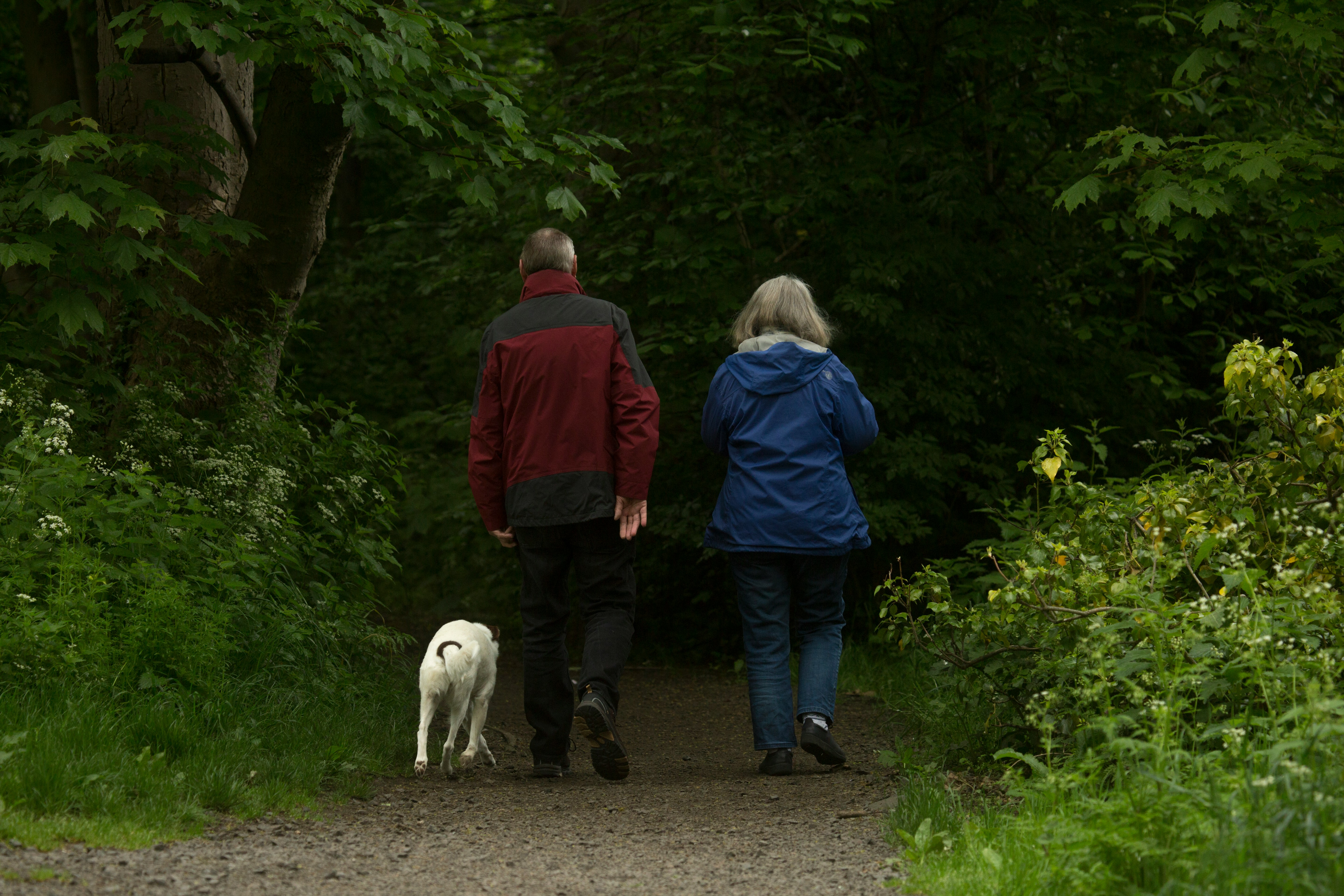Embracing Change at Any Age

Transform life's inevitable transitions from sources of anxiety into opportunities for growth, resilience, and unexpected joy throughout your golden years
Change is the one constant that threads through every human life, yet our relationship with it shifts dramatically as we age. In youth, change often feels exciting—new schools, first jobs, starting families, buying homes. In midlife, change becomes more complex—career transitions, children leaving home, evolving relationships. But in later life, change can feel more threatening, particularly when it involves losses we cannot control or reverse. However, this perception overlooks one of the most remarkable capacities of the human spirit: our ability to adapt, grow, and find unexpected opportunities for flourishing at any stage of life.
The Nature of Late-Life Change
The changes that accompany aging differ from those of earlier decades in several important ways. Many are involuntary—shifts in physical abilities, the loss of loved ones, health challenges, or changes in living situations. Unlike the chosen changes of youth, these transitions often arrive uninvited and require adaptation rather than initiation.
Yet within these seemingly limiting circumstances lies a profound truth: how we respond to change matters far more than the changes themselves. Two people facing identical challenges—say, the need to downsize their homes—can have completely different experiences based on their attitudes, coping strategies, and ability to find meaning in the transition.
Recent research in gerontology reveals that older adults who develop what psychologists call "adaptive capacity"—the ability to adjust positively to changing circumstances—report higher life satisfaction, better health outcomes, and greater resilience in the face of future challenges. This adaptive capacity isn't fixed; it can be developed and strengthened at any age through intentional practice and mindset shifts.
Reframing Loss as Transformation
Many of the changes associated with aging involve loss—of physical abilities, social roles, familiar routines, or cherished relationships. While acknowledging the reality of these losses is important, dwelling exclusively on what's gone can prevent us from seeing what might be gained or transformed.
Consider the common experience of retirement. On the surface, it involves the loss of professional identity, workplace relationships, structured days, and regular income. However, retirement can also represent the gain of freedom, flexibility, time for neglected interests, and the opportunity to explore different aspects of identity that were suppressed during working years.
The key lies in what researchers call "benefit finding"—the ability to identify positive aspects of challenging situations without minimizing their difficulty. This isn't about false optimism or denial, but rather about developing the cognitive flexibility to see multiple dimensions of complex experiences.
When health challenges arise, for instance, they certainly involve unwelcome limitations and concerns. But they can also prompt important conversations with loved ones, clarify what truly matters in life, inspire lifestyle changes that ultimately improve wellbeing, or create opportunities to receive and appreciate support from others.
The Power of Choice Within Constraints
One of the most empowering realizations about change is that even when we cannot control what happens to us, we always retain some degree of choice about how we respond. Viktor Frankl, the Holocaust survivor and psychiatrist, wrote extensively about this fundamental human freedom—the ability to choose our attitude toward unavoidable circumstances.
In practical terms, this means that while we may not be able to prevent certain physical changes, we can choose how to adapt our activities and expectations. If arthritis makes gardening difficult, we might shift to container gardening, focus on garden design rather than physical maintenance, or mentor others who are developing their gardening skills.
When friends or family members pass away, we cannot change this reality, but we can choose how to honor their memories, connect with others who knew them, or channel our grief into meaningful activities that reflect values they embodied.
These choices, while often small individually, accumulate into patterns of response that either enhance or diminish our resilience and life satisfaction. People who consistently look for ways to adapt rather than simply endure tend to maintain higher levels of agency and optimism even as external circumstances become more challenging.
Building Flexibility and Resilience
Resilience—the ability to bounce back from adversity—was once thought to be a fixed personality trait. However, decades of research have revealed that resilience is actually a skill set that can be developed and strengthened throughout life. For older adults, building resilience becomes particularly valuable as the frequency of challenging changes tends to increase with age.
Physical resilience involves maintaining strength, balance, and flexibility through appropriate exercise and health management. But it also includes learning to work with physical limitations rather than fighting against them. Many older adults discover that accepting certain constraints while actively maintaining what they can control leads to better outcomes than denial or excessive struggle against inevitable changes.
Emotional resilience develops through practices that help regulate responses to stress and loss. This might include mindfulness meditation, regular social connection, engaging in meaningful activities, or working with counselors who specialize in late-life transitions. The goal isn't to eliminate difficult emotions but to develop the capacity to experience them without being overwhelmed.
Social resilience involves building and maintaining networks of support that can provide assistance during challenging periods. This includes nurturing existing relationships, developing new connections, and learning to both offer and accept help from others. Many people discover that asking for help, initially seen as a sign of weakness, actually strengthens relationships by allowing others to feel useful and needed.
Cognitive resilience focuses on maintaining mental flexibility and problem-solving abilities. This involves challenging negative thought patterns, staying curious about new experiences, and practicing what psychologists call "cognitive reframing"—the ability to see situations from multiple perspectives.
Finding Opportunity in Unwelcome Changes
Some of the most profound personal growth occurs not during smooth periods but during times of disruption and challenge. When familiar routines and assumptions are disturbed, we're forced to discover capacities we didn't know we possessed and to explore options we might never have considered otherwise.
The loss of a spouse, while devastating, sometimes reveals inner strength and independence that was previously untested. Many widowed individuals discover interests and abilities that were overshadowed by their roles in long marriages. They might return to school, travel to places their spouse wasn't interested in visiting, or develop friendships that wouldn't have developed within the context of couplehood.
Health challenges often prompt lifestyle changes that, once adapted to, improve overall quality of life. Dietary modifications required by medical conditions sometimes lead to discovering new foods and cooking methods. Exercise programs begun reluctantly for health reasons often become sources of energy, social connection, and personal accomplishment.
Forced relocations—whether due to finances, health needs, or family circumstances—can initially feel like unwelcome disruptions of familiar environments and routines. However, many older adults find that moves to new communities, even when initially resisted, provide opportunities for reinvention, new friendships, and different ways of living that they ultimately prefer to their previous situations.
Practical Strategies for Managing Transitions
Successfully navigating change requires both emotional preparation and practical strategies. One of the most helpful approaches involves breaking large changes into smaller, manageable steps rather than trying to adapt to everything at once.
When facing a major transition, such as moving to a new home or adjusting to a significant health change, it helps to identify which aspects of the situation you can control and focus your energy there. You might not be able to change the need to relocate, but you can control how you approach finding and setting up a new home.
Creating routines and maintaining familiar elements during times of change provides stability and comfort. If you're adjusting to retirement, maintaining your morning routine or continuing weekly coffee dates with friends can provide continuity even as other aspects of life shift dramatically.
Seeking information and support early in transition processes often makes them more manageable. Rather than waiting until changes are forced upon you, proactive exploration of options and resources allows for more thoughtful decision-making and better outcomes.
Many people find it helpful to document their experiences during major transitions—through journaling, talking with trusted friends, or working with counselors. This processing helps integrate new experiences and often reveals growth and adaptation that wasn't immediately apparent during the midst of challenging periods.
The Role of Meaning-Making
One of the most powerful tools for managing difficult changes involves finding meaning and purpose within them. Research consistently shows that people who can identify significance or value in their struggles adapt better and experience less psychological distress.
This meaning-making process might involve seeing challenges as opportunities to help others facing similar situations. Many people who navigate health crises successfully become advocates, support group leaders, or informal counselors for others dealing with similar diagnoses.
Sometimes meaning emerges from recognizing how adversity has led to personal growth, deeper relationships, or clarified priorities. The process of surviving and adapting to major changes often reveals strengths and capabilities that enhance self-confidence and resilience for future challenges.
For some, meaning comes from viewing their experiences as part of larger spiritual or philosophical frameworks that provide context and comfort during difficult periods. Faith traditions, philosophical practices, or connection to nature can provide perspectives that help make sense of otherwise overwhelming changes.
Modeling Positive Adaptation
How we handle change not only affects our own wellbeing but also influences the people around us, particularly family members who may be watching and learning from our responses. Adult children often gauge their own expectations about aging based on how they see their parents navigate late-life changes.
When we demonstrate resilience, creativity, and grace in adapting to challenges, we provide valuable models for others who will face similar transitions in the future. This modeling becomes part of our legacy—showing others that aging doesn't have to mean passive acceptance of decline but can involve active engagement with whatever circumstances arise.
Conversely, approaching changes with excessive fear, resistance, or negativity can create anxiety in others and missed opportunities for growth and adaptation. While it's important to acknowledge genuine difficulties, maintaining hope and looking for possibilities within constraints benefits everyone in our social circles.
The Ongoing Journey
Perhaps the most important insight about change in later life is that adaptation is an ongoing process rather than a destination to reach. Each new challenge provides opportunities to practice and refine our coping skills, to discover previously unknown strengths, and to deepen our understanding of what truly matters.
The changes we face as we age—physical, social, emotional, and spiritual—are not punishments or failures but natural parts of the human journey. How we meet these changes determines not just our own quality of life but also contributes to how aging is understood and experienced in our families and communities.
By embracing change as a pathway to continued growth rather than evidence of decline, we transform the later chapters of life from a story of diminishment into one of ongoing evolution and discovery. Each adaptation successfully made builds confidence for future challenges while demonstrating that resilience, creativity, and joy remain possible at every age.
The invitation is clear: to approach each change, whether chosen or imposed, as an opportunity to discover who we are becoming rather than who we are no longer. In this reframing, aging becomes not about ending but about continuing to unfold into the fullest expression of our human potential.





